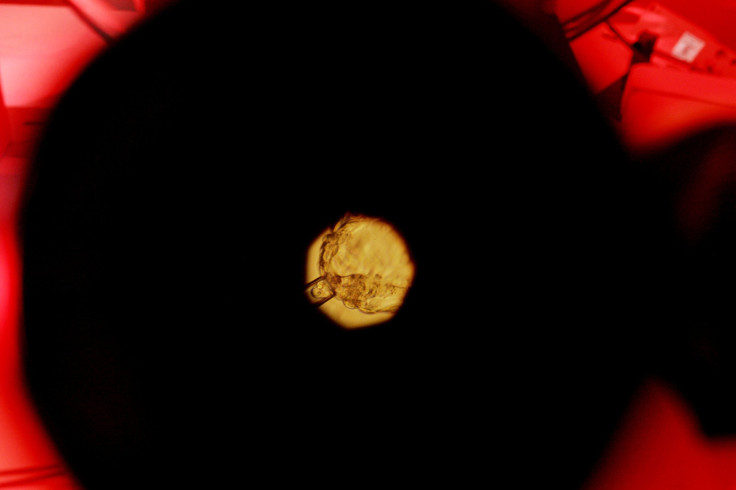Future Of Pregnancy: New Paper Examines 'In Vitro Gametogenesis,' Raises Specter Of Embryo Farming, Designer Babies

A new biomedical procedure – known as in vitro gametogenesis (IVG) – which has so far only been demonstrated in mice, raises ethical and legal concerns as it may lead to large scale “embryo farming,” and may promote genetic discrimination through eugenics, researchers warned in a recent essay.
However, the essay written in Science Translational Medicine by three experts from scientists from Harvard and Brown University – Eli Adashi, Glenn Cohen, and George Daley – contains more than just warnings.
Rather, it begins by mentioning the various revolutionary benefits that the procedure potentially offers. IVG involves the generation of eggs and sperm from pluripotent stem cells derived from adult body tissues, such as skin cells. This may lead to the creation of embryos from these gametes.
The creation of embryos using this technique could help many infertile couples, including cancer survivors who have turned infertile due to treatment such as chemotherapy. It could also potentially weed out inherited diseases and would certainly increase our scientific knowledge on the subject of how gametes are formed and diseases are inherited, something that was pioneered through the so-called "three-DNA babies" technique that prevents the transference of mitochondrial DNA mutations that cause Leigh syndrome, a fatal neurological disorder.
Theoretically, it could also allow same-sex couples to conceive, eliminating any need of egg donors. The current process of in-vitro fertilization (IVF), which is expensive and time-consuming because it requires stimulating the hormone of women to retrieve their own eggs, may also become more simplified as IVG involves the rapid creation of many eggs from stem cells. Older women could also conceive using this technique.
"The number of women delaying pregnancy is growing and around the world the age of first-time mothers is increasing. For some older women, it can be difficult to conceive using their own eggs, and this new technique could help them and be very important in accompanying this trend. Of course this comes with a set of ethical questions - will we see more and more women starting a family in their 40's or 50's?" Joyce Harper, a professor of human genetic and embryology and deputy chair on the board of the British Fertility Society, told IBTimes UK.
Harper and others also point out a few other concerns that come with this technology, such as the emergence of "designer babies," defined as a baby whose genetic make-up has been selected in order to eradicate a particular defect, or to ensure that a particular gene is present. In addition, it could also lead to peoples' cells being harvested without their knowledge and being used to create viable embryos — opening up a Pandora's box of legal troubles.
"Should the law criminalize such an action?" Cohen, Daley and Adashi asked. "If it takes place, should the law consider the source of the skin cells to be a legal parent to the child, or should it distinguish an individual's genetic and legal parentage?"
The authors write: "Of course, successfully using the technology in this way would require far deeper knowledge of human genetics than we currently have. Nevertheless, even at this stage, it is worth contemplating the ethical issues raised by such a possible future, which would directly force regulators to make difficult decisions on drawing the line between alterations that end harmful conditions versus eugenics."
"IVG may raise the spectre of 'embryo farming' on a scale currently not imagined, which might exacerbate concerns about the devaluation of human life," the scientists added.
© Copyright IBTimes 2024. All rights reserved.






















